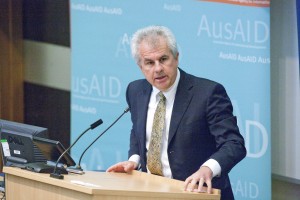Lant Pritchett, Harvard professor and former World Bank economist, recently reviewed common misconceptions about poverty during the Wheatley International Affairs Conference. Julian Omidi reviews how this speech may change your views on poverty.
After receiving his Ph. D. in Economics from the Massachusetts Institute of Technology, Lant Pritchett went on to work for the World Bank from 1988 to 2000 and again from 2004 to 2007, and has served as a professor at the Kennedy School of Government at Harvard University.
At the Wheatley International Affairs Conference in Sundance, Utah, Dr. Pritchett gave a speech addressing global poverty and the misconceptions that even those involved in the struggle against may have. Here are some of the points that he made during his speech:
- Rich People are Even Wealthier in Poor Countries – Many people believe that the rich in poor countries live a life of opulence, but Pritchett stated that the number of truly wealthy individuals in poor countries is “statistically insignificant.” One of the best indicators of wealth, and lack thereof, across borders is food spending, specifically the percentage of income that a person spends on food. The example provided was that the bottom 10% of Americans spend 17% of income on food, while the top 10% of those living in India spend 40% of their income on food. Statistically the rich in developing countries are much poorer than the poor in developed nations.
- People Are Poor Because of Who They Are Not Where They Live – This misconception was addressed with an example of poverty in Haiti and unskilled laborer. In Haiti an unskilled laborer makes $0.80 an hour. If the same laborer worked in the United States they would earn $8.50 an hour. Pritchett argued that what contributes to poverty in Haiti is the inability of their society to make productive use of their labor.
- More Education and Technology Are the Answer – Pritchett suggested that his research suggests that the problem in most poor nations is their inability to make use of the skills of their people and that introducing more education and technology may not be a solution, unless it leads to work in industrialized nations whether permanent or temporary.
To learn more about the speech you can visit Deseret News to read a further synopsis.
What do you think about Dr. Prtichett’s address? Do you believe that these are problems that need to be addressed or is he wrong? Leave your comments below.

